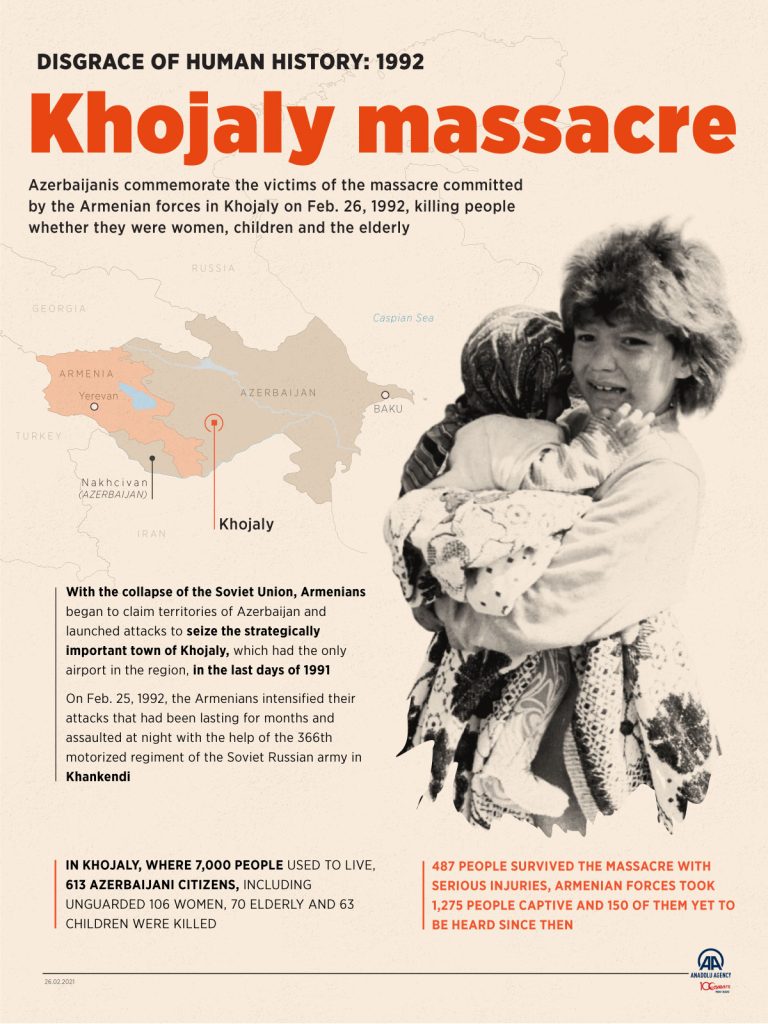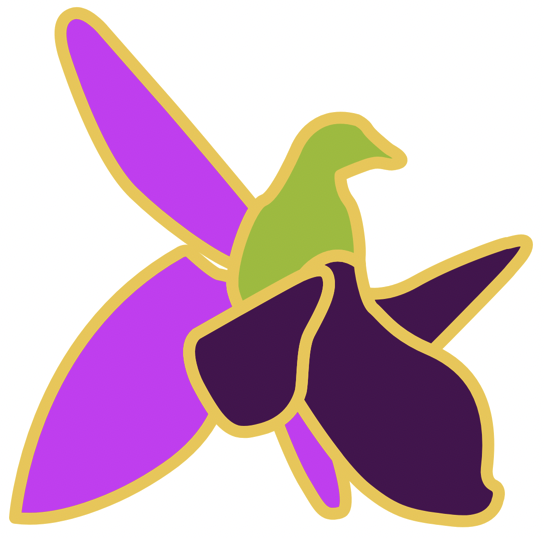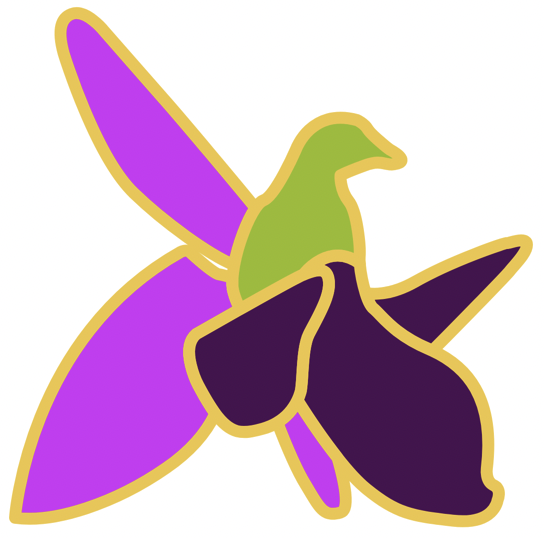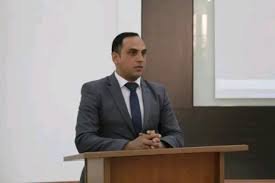The genocide committed in the city of Khojaly in Azerbaijan on February 26, 1990 by the Armenian armed groups together with the 366th motor-rifling regiment of former Soviet troops was one of the unprecedented events in the history of wars. A lot of heavy military equipment of this regiment entered the town in three directions. The people of Khojali, who defended the town bravely and fought with light weapons in their hands, couldn’t withstand the well armed military groups. Dwelling houses were destroyed and set on fire. Peaceful civilians, obliged to leave the town and fleeing to Agdam along the Gargar River, encountered Armenian forces near Nakhchivanik village and real genocide was committed. Children, women, elderly and disabled people were ruthlessly massacred. Perpetrators of the genocide murdered the Khojali people with unprecedented cruelty, burned them alive, skinned off their skulls and pulled out their eyes.
Khojaly tragedy- the genocide committed by Armenian aggressors against the Azerbaijani people put an end to lives of 613 people, including 106 women, 63 children, 70 old people. 487 people were injured, 275 civilians were taken captive, and 150 persons went missing.
According to the influential media reports and NGO assesstments as a result of this act of genocide some families were completely exterminated, civilians were killed with unbelievable cruelty, the corpses were mutilated and the captives were subjected to severe torture.
On that horrible night, when innocent children, women and elderly were massacred and a large town was razed to the ground, terrifying tragedy and sheer act of genocide took place in the history of humanity. During the genocide fundamental human rights were massively violated.

The sheer fact that these deeds were elaborated in advance and aimed at total or partial extermination of people on the ground of their national origin confirm that these acts constitute a genocide under international law. This act of vandalism and brutality committed by the Armenian aggressors should be estimated on the same level as Khatin and Songmi tragedies recognized by the good-will mankind as mere genocide.
Coming to international law, genocide is defined as an act committed against peace and humanity and considered to be the gravest international crime. United Nations Convention on the Prevention and Punishment of the Crime of Genocide adopted by UN General Assembly of 9 December 1948 provides legal framework of the crime of genocide. The Contracting Parties confirm that genocide, whether committed in time of peace or in time of war, is a crime under international law which they undertake to prevent and to punish.
As a result of Khojaly genocide and the other tragedies committed by Armenia in our territories, the rights and freedoms, including the right to life, prescribed in the Universal Declaration on Human Rights, as well as European Convention for the Protection of Human Rights and Fundamental Freedoms and in other international treaties had been violated, people had been subjected to outrages upon personal dignity, in particular humiliating and degrading treatment. The consequent events show that, unfortunately, Armenian chauvinists didn’t give up their evil intentions. Armenian chauvinists, who massacred peaceful population ruthlessly, use different methods to disguise their crimes before the history, try to falsify the history, to write it for their benefit.
Thanks to international public awareness campaignes the Khojaly Genocide is recognised and commemorated by parliamentary acts adopted in numerous countries. The legislative bodies of Bosnia and Herzegovina, Colombia, the Czech Republic, Honduras, Jordan, Mexico, Pakistan, Panama, Peru, Sudan, Djibouti, Guatemala, Scotland, Indonesia and Afghanistan as well as nineteen states of the United States of America have adopted relevant parliamentary resolutions and this process is underway. Surely, international recognitions are essential for preventing of repetition of such crimes. The large-scale bloody wars that the world is currently witnessing prove this once again. So, it is not late yet for international community to think and to make decisions in accordance with universal values and international legal norms in order to give proper legal assessment to Khojaly Genocide.
Sabuhi Abbasov,
Lawyer
Head of the Western Regional Centre of the Comissioner for Human Rights (Ombudsman) of the Republic of Azerbaijan




